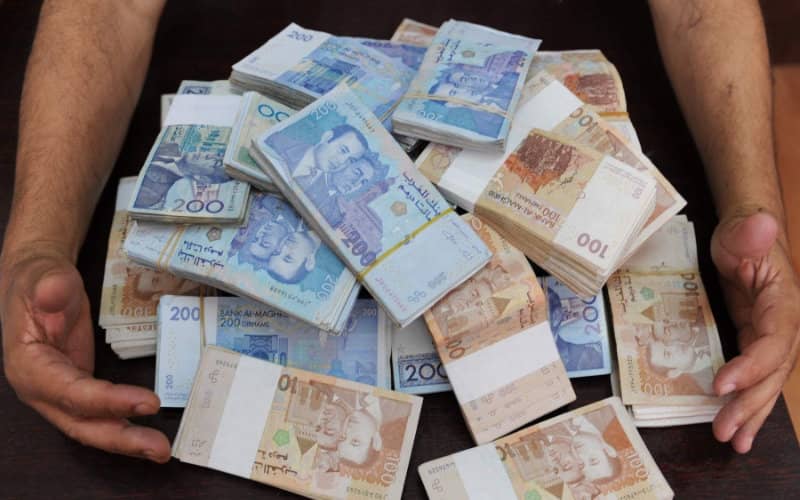Morocco’s Anti-Corruption Efforts Fall Short as GDP Losses Mount

The many efforts made by Morocco for decades to fight corruption do not seem to be bearing fruit. Launched in 2015 and implemented the following year, the national anti-corruption strategy whose deadline is 2025 has failed to overcome the evil.
The fight against corruption is still an uphill battle in Morocco. Mohamed Bachir Rachdi, President of the National Anti-Corruption, Prevention and Fight against Corruption Authority (INPPLC), does not deny the existence of the phenomenon. In the first edition of the "Letter of Integrity", published by this body, on the occasion of the National Anti-Corruption Day, celebrated on January 6 each year, he states that the evil is "at the top of the factors that undermine the foundations of the rule of law and promote various forms of privilege, clientelism and nepotism," reports Maroc Diplomatique.
We have to go back to 1998 to note the many anti-corruption initiatives launched, materialized by Morocco’s accession to several international conventions, including the United Nations Convention against Corruption (UNCAC), the Arab Convention against Corruption (ACAC) and the African Union Convention on Preventing and Combating Corruption. Later, in 2015, the country proceeded to the adoption and implementation of several mechanisms and government plans, including a "National Anti-Corruption Strategy" (SNAC) in order to strengthen the legal arsenal for the fight against corruption. But before that, the 2011 Constitution had emphasized Morocco’s commitment to adopting the principles of good governance, integrity and transparency.
A small assessment today allows us to affirm that the evil continues to progress in the kingdom. To measure the impact of the actions taken by Morocco against corruption over the past 20 years, we must refer to a survey conducted by the Royal Institute for Strategic Studies (IRES). The conclusions of this survey highlight that corruption in Morocco is affirming itself as one of "the main obstacles to peaceful coexistence". In reality, two decades later, all the signals are red, thus proving the patent failure of the fight against evil. Indeed, several reports, analyses and surveys, both national and international, confirm that corruption has taken root in all sectors of activity, thus consolidating its destructive anchoring. Morocco ranks 73rd in the world (out of 180 countries) in the Corruption Perceptions Index (CPI) ranking. The kingdom thus gains eight places and three points compared to 2017. But in 2019, the country fell back 7 places to 80th place out of 180 countries, losing 2 points and scoring 41 out of 100.
Another significant study, conducted by INPPLC entitled "Corruption Situation in Morocco: In-Depth Study of the Corruption Perceptions Index_R.004/2020", confirms the extent of the phenomenon. It notes that "Morocco’s position for more than 15 years has been characterized by relative stagnation, with a ranking oscillating between 73rd and 90th places". In other words, the country continues to suffer from the extent of the corruption phenomenon and the perception that accompanies it. A recent survey by Transparency Maroc shows that "74% of Moroccans believe that the government is not up to the task of curbing this scourge".
"Undeniable efforts have been made, yes perhaps, but the results are mixed, with ups and downs in most international rankings," concludes this Transparency Maroc survey. And the Moroccan Association for the Protection of Public Funds to specify that "the phenomenon causes Morocco to lose 5% of its GDP annually". According to it, "this scourge continues to undermine equal opportunities and access to the means of production and ensuring the conditions for a better and more equitable distribution of wealth".
With the health crisis due to Covid-19, the phenomenon of corruption has amplified. According to Mohamed Bachir Rachdi, President of INPPLC, "Morocco now faces greater challenges than ever before". The kingdom "must make the major adjustments that are required, ensuring that it accelerates structural reforms, to create the favorable conditions for the new desired development model". It should also make "transparency and responsible governance an essential foundation to be able to meet the legitimate needs and expectations of citizens".
Related Articles
-

Quebec’s International Student Crisis: UQAM Faces 39% Drop as Government Policies Spark Global Concern
5 September 2025
-

Surge in UK Train Phone Thefts: One Device Stolen Every 44 Minutes, Many Ending Up in Morocco
5 September 2025
-

French Retirees Abroad Face Digital Revolution: Biometric App Replaces Traditional Proof of Life
5 September 2025
-

Fake Colonel Arrested: Massive Fraud Scheme Uncovered in Morocco’s Southeast
5 September 2025
-

Royal Rift: Macron and Morocco’s King Clash Over Pegasus Spyware Scandal
5 September 2025